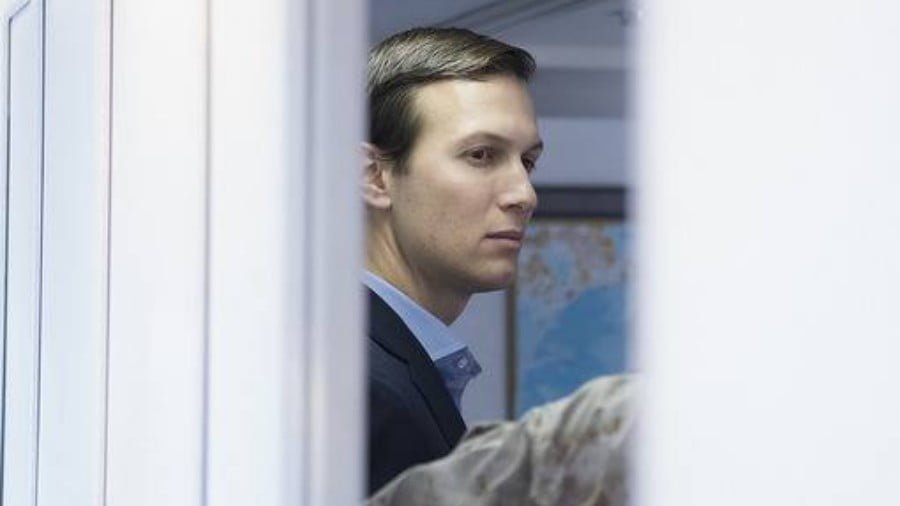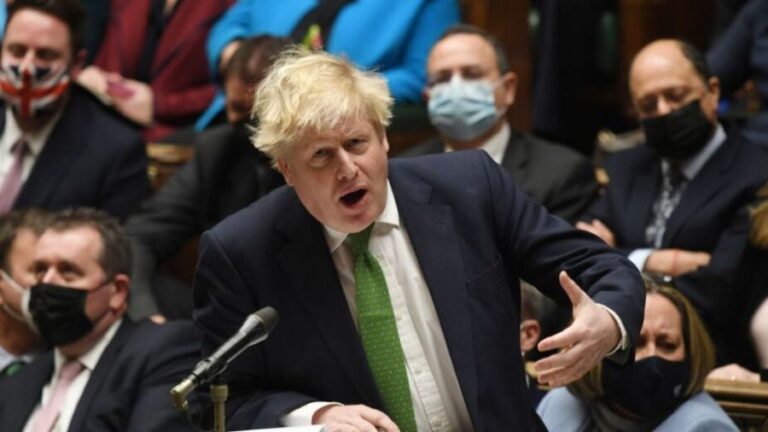Rhetoric vs. Reality: Biden’s Foreign Policy in Review
From the earliest days of his administration, President Biden has sought to draw a sharp distinction between his approach and that of his predecessor, Donald Trump.
He pledged to put diplomacy first, repair alliances frayed by Trump’s bombastic rhetoric, and rejoin several key international agreements, including the Paris climate accords. He quickly renewed U.S. participation in the New START Treaty and pledged to rejoin the Iran nuclear deal, formally known as the Comprehensive Program of Action, or JCPOA. He spoke of pursuing a “foreign policy for the middle class” that would elevate domestic concerns as a foundation of U.S. global strength.
With respect to the Middle East, the president used his first foreign policy speech to unveil a plan to work towards an end to the brutal war in Yemen, including a promise to “end support for offensive operations [by Saudi Arabia and the United Arab Emirates], including relevant arms sales.”
Nothing could seem further from the transactional, “America First” approach pursued by Donald Trump. But two years into the administration, the reality of Biden policy has proven to be more complicated than its early rhetoric suggested.
One of the signal accomplishments of the administration to date was sticking to its deadline for withdrawing U.S. troops from Afghanistan despite opposition in the D.C. and media establishments. But the Afghan withdrawal did not presage an end to the forever wars or the global war on terror. Indeed, Biden underscored his continuing commitment to a global war on terror in his speech marking the pullout from Afghanistan:
“Today, the terrorist threat has metastasized beyond Afghanistan. So, we are repositioning our resources and adapting our counterterrorism posture to meet the threats where they are now significantly higher: in South Asia, the Middle East, and Africa.”
Meanwhile, the administration appears to have failed to redeem its pledge to rejoin the JCPOA, in part due to a lack of urgency and flexibility in pursuing an agreement. In a December 4 speech, Secretary of State Anthony Blinken implied that the administration was still committed to the deal, while at the same time making a veiled threat to use force if Iran seeks a nuclear weapon:
“We continue to believe that diplomacy is the best way to prevent Iran from obtaining a nuclear weapon. But should the Iranian regime reject that path, its leaders should make no mistake that all options are on the table to ensure that Iran does not obtain a nuclear weapon.”
Blinken’s statement was contradicted by a November 4 statement by President Biden himself. A video of a political rally, which was only made widely available in late December, shows Biden responding to a question about the Iran deal by saying, “It’s dead, but we’re not going to announce it.” When asked about the video, National Security Council spokesperson John Kirby said “there is no progress happening with respect to the Iran deal now. We don’t anticipate any progress, anytime in the near future. That’s just not our focus.”
It’s not unusual for presidential plans to be derailed by unexpected crises. In Biden’s case, that crisis is the Russian invasion of Ukraine. He deserves credit for rallying NATO allies to provide ample support for Ukraine’s defense. If the latest aid package is approved, total U.S. military aid to Ukraine and U.S. NATO allies will reach $50 billion. Yet to be determined is whether the Biden administration will develop a full-fledged diplomatic strategy for trying to keep the Ukraine war from grinding on for years or escalating dramatically from its current levels. While a diplomatic solution is not in the cards at the moment, it’s not too early to prepare the ground for a possible settlement.
On its pledges with regard to Saudi Arabia, administration policy has been disappointing. After a review of U.S. security policy towards the Gulf states that included pausing weapons transfers, the administration has gone on to offer $4 billion in arms to the Saudi regime.
Furthermore, Biden’s trip to Saudi Arabia last summer, hat in hand, failed to persuade Riyadh to increase oil output in hopes of lowering gas prices in the U.S. Instead, the Saudi leadership collaborated with Russia to keep prices high, even as it continues to buy oil from Moscow. This move so angered key players in Congress that members ranging from Senate Foreign Relations Committee chair Robert Menendez (D-NJ) to Rep. Ro Khanna (D-Calif) called for a suspension of some or all weapons supplies to Saudi Arabia until such time as it shifts policy on oil output and relations with Russia. The Biden administration has said there will be “consequences” for Saudi actions, but so far there have been none.
Meanwhile, the administration lobbied against recent efforts to pass a War Powers Resolution on Yemen in the Senate, which advocates say would have cut off U.S. arms and military support to Saudi Arabia as a way to prevent it from restarting attacks on Yemen, as well as to persuade it to negotiate in good faith for an agreement to end the war. The primary sponsor of the resolution, Sen. Bernie Sanders (I-VT) pulled it at the last minute under an agreement with the administration to come up with language that both sides could live with.
On the budgetary front, the administration has been as or more aggressive than Trump in pushing for funds for the Pentagon, reinforced by hawks in Congress who have moved to provide even more funding than the administration requested. Spending on the Pentagon and related items like nuclear warhead work at the Department of Energy is likely to hit $858 billion next year. That’s $80 billion more than FY 2022 levels. The increase alone is greater than the entire military budget of every nation in the world but China.
On relations with China, the administration appears to be veering off course. Despite some rhetoric about the need to cooperate with China, especially on existential issues like climate change, the Biden administration has taken a hard line against Beijing, muddying the waters about whether it would send U.S. troops to Taiwan in the event of a Chinese invasion and undermining the “one China” policy that has kept the peace between the two rival powers for over four decades.
Last but not least, the administration has doubled down on the Pentagon’s three-decades-long plan to invest up to $2 trillion in a new generation of nuclear-armed bombers, missiles, and submarines, complete with new warheads to go with them. This is far more than is needed for deterrence and is only likely to contribute to a new nuclear arms race.
Arms control between the U.S. and Russia is on life support. But even at the height of the Cold War, Washington and Moscow maintained communications regarding their respective nuclear arsenals. The Cold War period was marked by the conclusion of major arms control treaties including the partial test ban, the Nuclear Non-proliferation Treaty (NPT), the Conventional Forces in Europe Treaty (CFE) and the Intermediate Nuclear Forces in Europe Treaty (INF).
To its credit, the Biden administration has not given up on the prospect of new arms control agreements, as noted in its recent Nuclear Posture Review:
“Consistent with our commitment to put diplomacy first, the United States will pursue new arms control arrangements that address the full range of nuclear threats and advance our global non-proliferation interests.”
This may be easier said than done, but the fact that the Biden administration remains committed to arms control in the current global security environment offers a sign of hope.
In the larger picture, however, the Biden commitment to lead the charge of democracies over autocracies is a flawed concept. Among other things, not all autocracies are created equal – witness continuing U.S. arms supplies to Saudi Arabia and Egypt. The administration would be better served by striving to preserve and strengthen democracy at home in a bid to persuade others that it is a better system of government. The $37 billion-per-year investment in addressing climate change contained in the Inflation Reduction Act that passed earlier this year is one step in the right direction, as is the administration’s infrastructure plan.
It’s hard to definitively assess an administration after just two years in office. And it’s not too late to change course. If it were to live up to its own early rhetoric, the Biden administration could sow the seeds of a more effective foreign policy that truly puts diplomacy first and enhances democracy and economic equality at home. Instead, it has squandered too many resources and too much attention on military solutions to complex security problems, crowding out its better instincts in the process. Hopefully, this will change over the next two years, and diplomacy and economic engagement will be elevated above militarized approaches to foreign policy. It will be up to a better informed and more engaged public to help make that happen.







